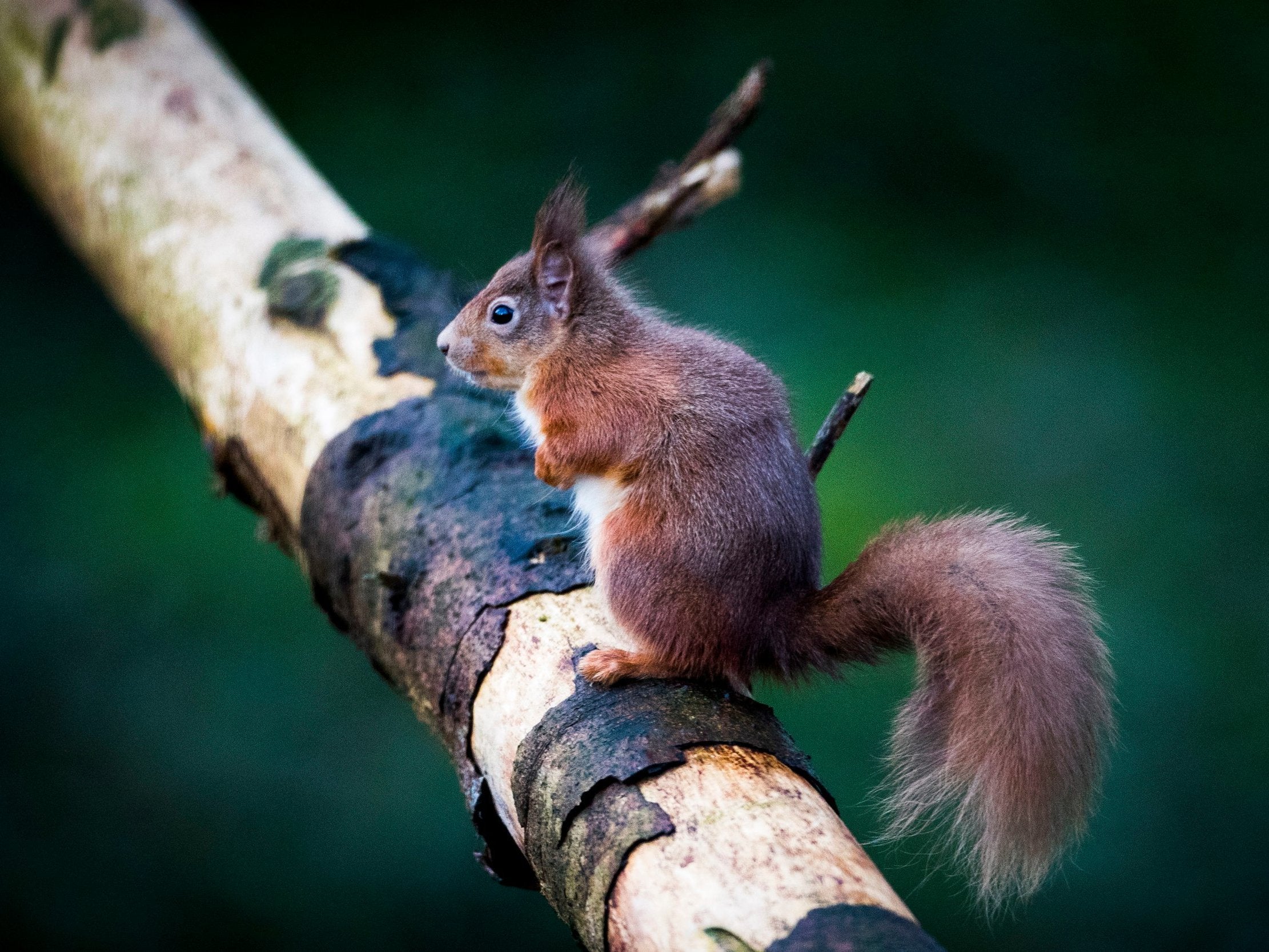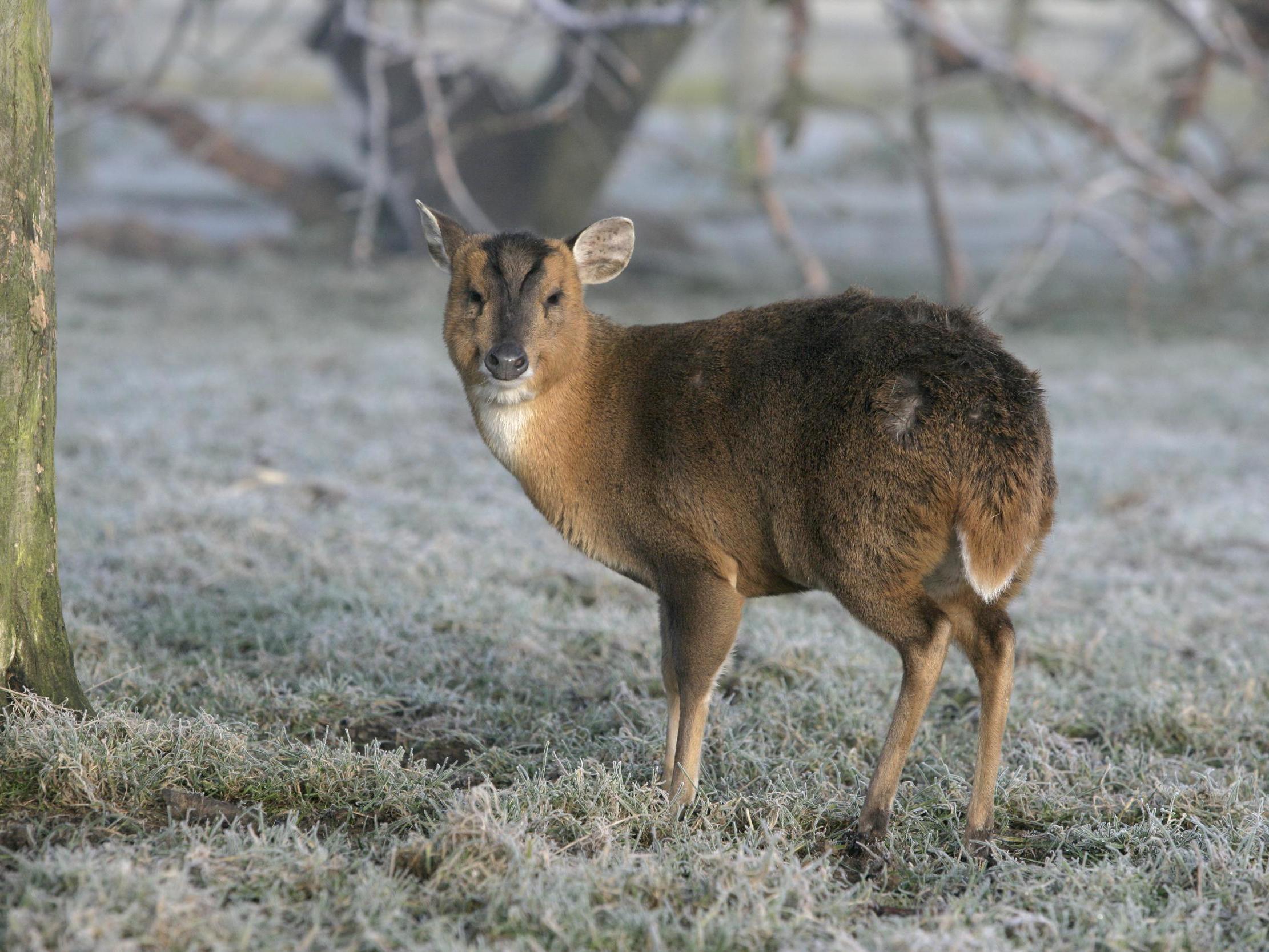Rescue groups banned from releasing 'illegal alien' grey squirrels back into wild after Brexit
Animal rescuers say new rules mean they could have licences revoked and be forced to euthanise animals, but government insists this is not the case
Rescue centres will be banned from releasing animals labelled as “illegal aliens” such as grey squirrels and muntjac deer back into the wild after Britain leaves the EU.
Until now, rescue groups have been able to apply for a licence allowing them to nurse these species back to health and release them once they are rehabilitated.
But under strict new government rules from 29 March, it will be illegal to release a list of non-native animals such as grey squirrels to slow the spread of invasive species.
The Invasive Alien Species Order 2019 has sparked outcry from rescue groups, who claim they will have their licences revoked and could be forced to euthanise animals.
A petition on the parliamentary website to make grey squirrels exempt from the new rules has attracted more than 46,000 signatures.
If it reaches 100,000 signatures, it will trigger a parliamentary debate.
The Department for Environment, Food and Rural Affairs (Defra) has insisted there is no direct requirement to euthanise grey squirrels and muntjac deer.
Environment minister Therese Coffey said in a written answer last month that “healthy animals taken from the wild may be kept until the end of their natural lives, under licence, provided that they are prevented from breeding or escape”.
However Natalia Doran, who runs rescue group Urban Squirrels and set up the petition, said many rescue centres do not have the facilities to keep the animals until the end of their natural lives.
She told The Independent: “There are huge, well-funded centres and they don’t believe in keeping animals in captivity, it’s really not a solution.
“When you think about the kind of animal that goes 20 metres up in the air what kind of enclosure would you have.

“They are saying we don’t have to euthanise them but what would we do if fresh ones come in.”
Ms Doran said she has a licence to keep up to 12 grey squirrels, but receives about 80 phone calls a year from members of the public and refers them to other centres.
However the 54-year-old added that while Defra said rescue groups could continue to take grey squirrels in but not re-release them, an email she received from Natural England told her all licences would be revoked from the end of March.

Natural England told Ms Doran it was awaiting guidance from Defra and would contact licensees once it knew more.
Jade Emery, wildlife campaigner for animal rights group Animal Aid, previously said: “Soon this tyrannical and pointless regulation will mean that rescue organisations are forbidden from helping a single squirrel.”

Defra says the order is being brought in to protect the country’s ecosystems and protected species.
A spokesperson said: “This action is to protect our native red squirrels which, with only an estimated 15,000 left in England, are in real danger.
“Both the grey squirrel and muntjac deer are highly invasive species which cause significant impacts on domestic ecosystems and protected species.
“Invasive non-native species cost the economy more than £1.7 billion per year.”
The Independent also contacted the RSPCA for comment, which previously argued the new law will make “little or no difference” to the wider population of grey squirrels or muntjac deer.
Join our commenting forum
Join thought-provoking conversations, follow other Independent readers and see their replies
Comments
Bookmark popover
Removed from bookmarks